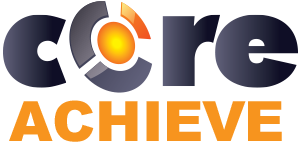The Consequences of Poor LMS Security
April, 26 2023
Other posts:
Enhancing Team Dynamics for Effective Group Decision-Making with LMS Integration
Organizations increasingly rely on collaborative efforts to solve complex problems, innovate, and adapt to change, but how do we ensure that collaboration is happening.
Maximizing Small Business Potential with Training Technology
Training technologies can push small businesses ahead of their competitors, but what are the factors that go into choosing the right technology?
Unlocking Employee Potential: The Transformative Benefits of an Interactive Learning Management System (LMS)
Interactive training allows for unlocking employee potential, but how is it done?
Building a Robust Sales Pipeline with Training
Every organization wants a streamlined sales pipeline, but building one requires a series of interlocking activities with one of the most important being training.
Strategies for Adapting In-Person Training to Online Platforms
Online training is one of the most flexible ways of delivering training across organizations, but how do you even begin to adapt in-person training into online?
Does your organization value the security of their LMS? Depending on the nature of the LMS's content, being more lax on security may not seem very harmful, but it is.
Organizations should always prioritize security in all their systems to ensure that their employees, ideas, and financials remain safe. Yet, with so many systems to keep safe, it can be easy to overlook the security of a learning management system (LMS)—after all, what damage could a vulnerable LMS cause? A lot.
Why to Keep an LMS Secure
Granted, the question and answer above is a bit theoretical, but there are plenty of reasons why an organization should keep their LMS secure. For example, an LMS will often hold sensitive information about the users like personal, financial, or propriety data.
Never underestimate what information could be useful for the breachers. The password to a learner’s LMS account may not seem too harmful, but what if the learner uses that password for other, more costly accounts. Name, email, and passwords are likely to be repeated across multiple systems—systems that can harm the user or organization.
A breach of this sensitive information alone could spell harm for the organization, but especially with data protection regulations. Which could result in heavy fines and legal ramifications for the organization if proof of negligence is found.
These ramifications are more likely to occur if an organization opens its LMS up to the public. A breach cannot only harm the organization internally, it would impact users and the organization’s image.
The unfortunate truth is that while there are some precautions an organization can take to prevent breaches, some of the work will fall onto the LMS provider. CoreAchieve places an emphasis on security, but how can an organization keep their LMS secure?
How to Keep an LMS Secure
Much like any other system, an organization can set regulations and guidelines for proper etiquette reducing the number of chances for a breach to happen. These recommendations aren’t foolproof, but they will dramatically lower the risk of breaches.
Use Strong Passwords
This is good advice for any organization and should extend to their LMS platform as well. Passwords should be constructed from a combination of upper and lowercase letters, numbers, and symbols.
Limit User Access
Limiting user access to only those who are currently using the LMS can not only save the organization money, but also will decrease the availability points of access for attackers.
Train Users on the Best Security Practices
Educating employees on security best practices, such as not sharing or repeating passwords, can help to prevent security breaches.
Conduct Regular Security Audits
Conducting regular security audits helps to identify vulnerabilities and ensure that security protocols are being followed. CoreAchieve makes this process easier by recording all logins and actions, complying them into logs.
An LMS holds information that, no matter how minuscule it might seem, should be protected. A user’s personal information could give attacks just enough information to breach other systems within the organization. Furthermore, an LMS could hold propriety data that, if leaked, could put its creators on the backfoot.
The information an LMS holds will vary from organization to organization, but never underestimate the usefulness of any information for attackers. Security measures and practices like using strong passwords, limiting access to necessary users, training users, and conducting regular security audits.
Get started with CoreAchieve for free.
Photo by Sigmund on Unsplash

Leave comment: